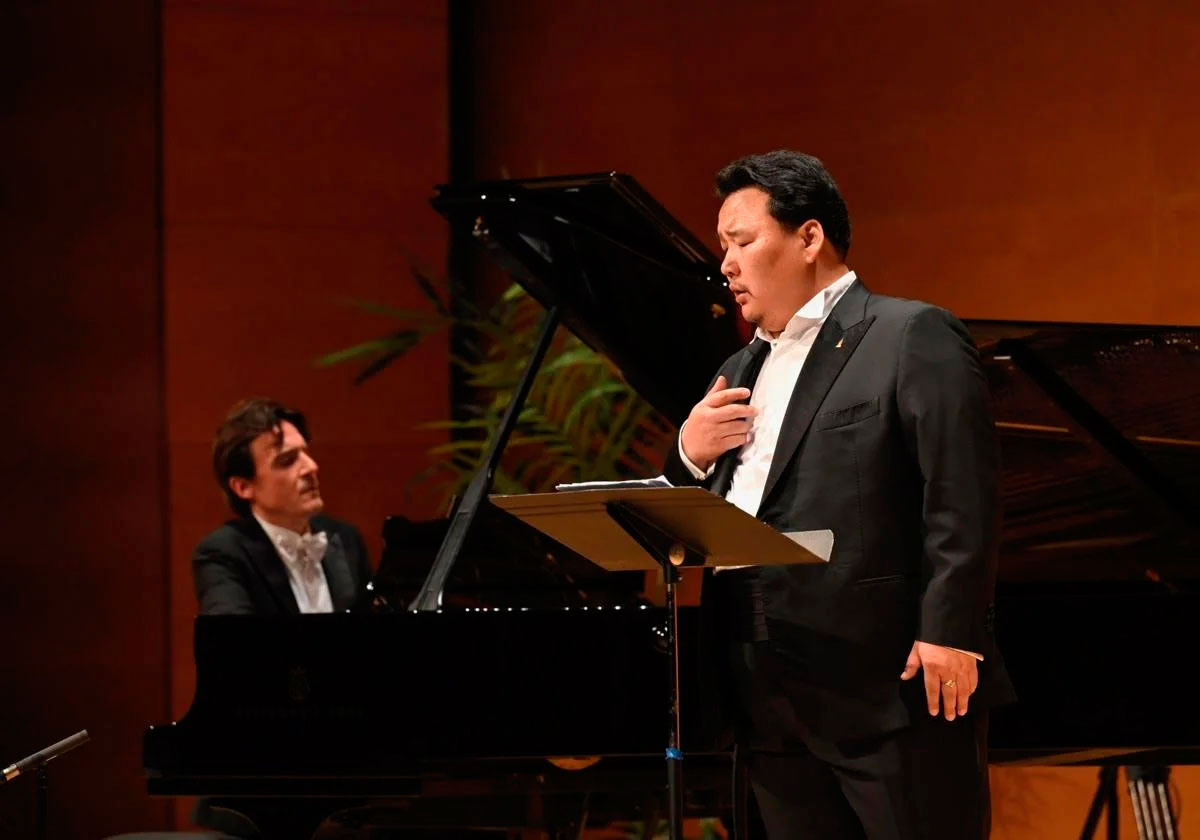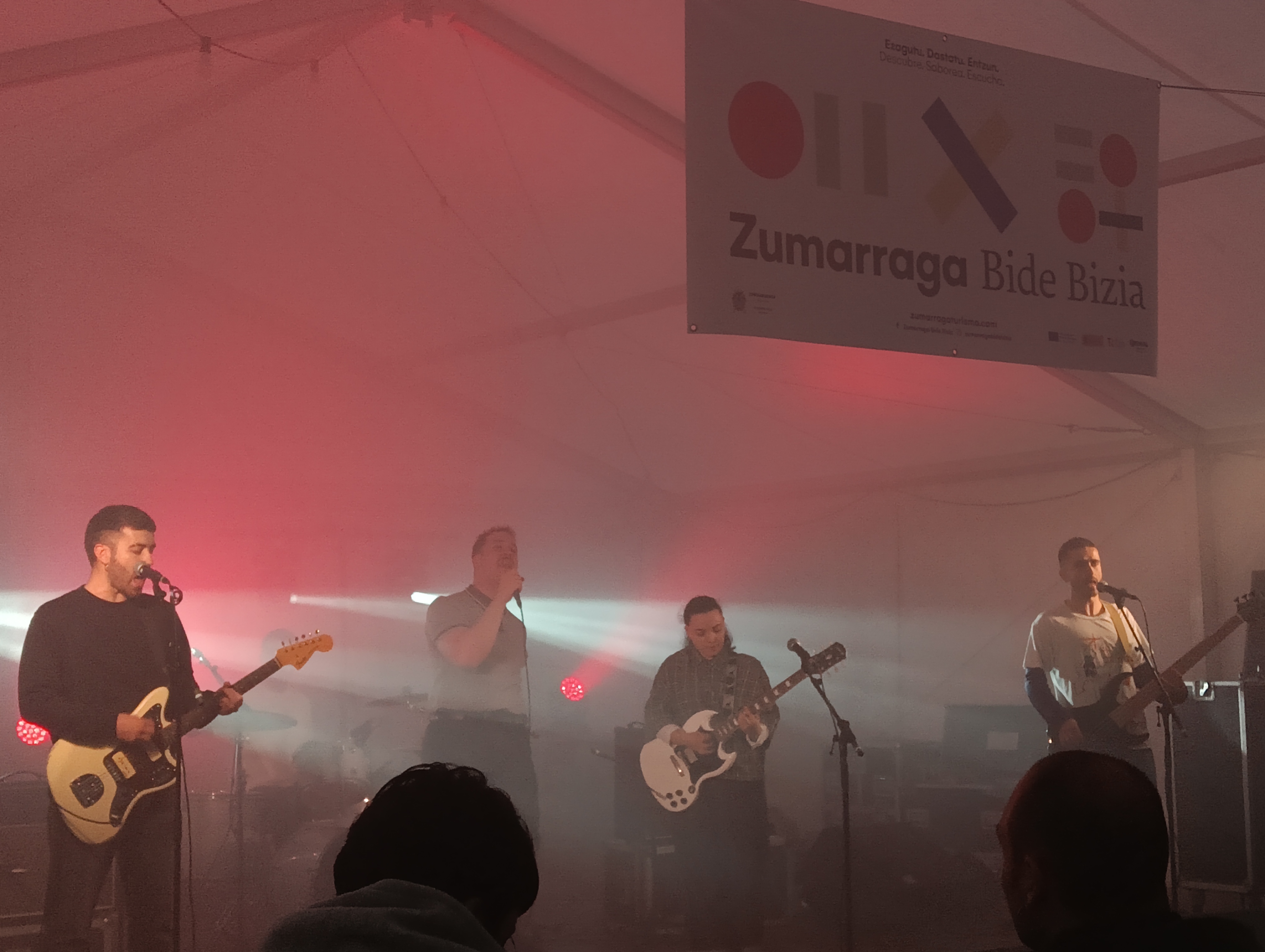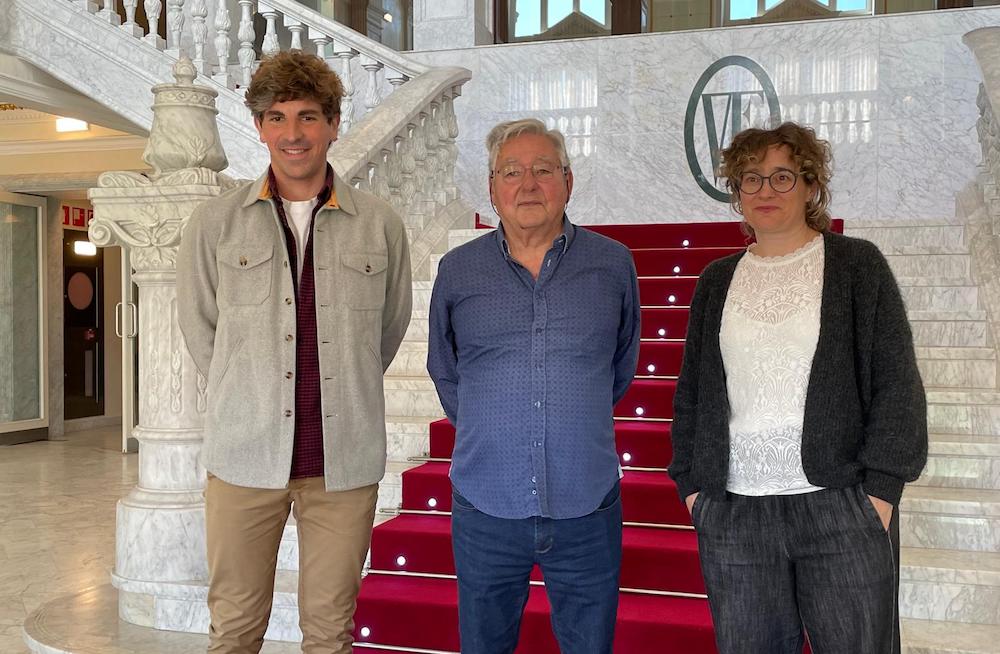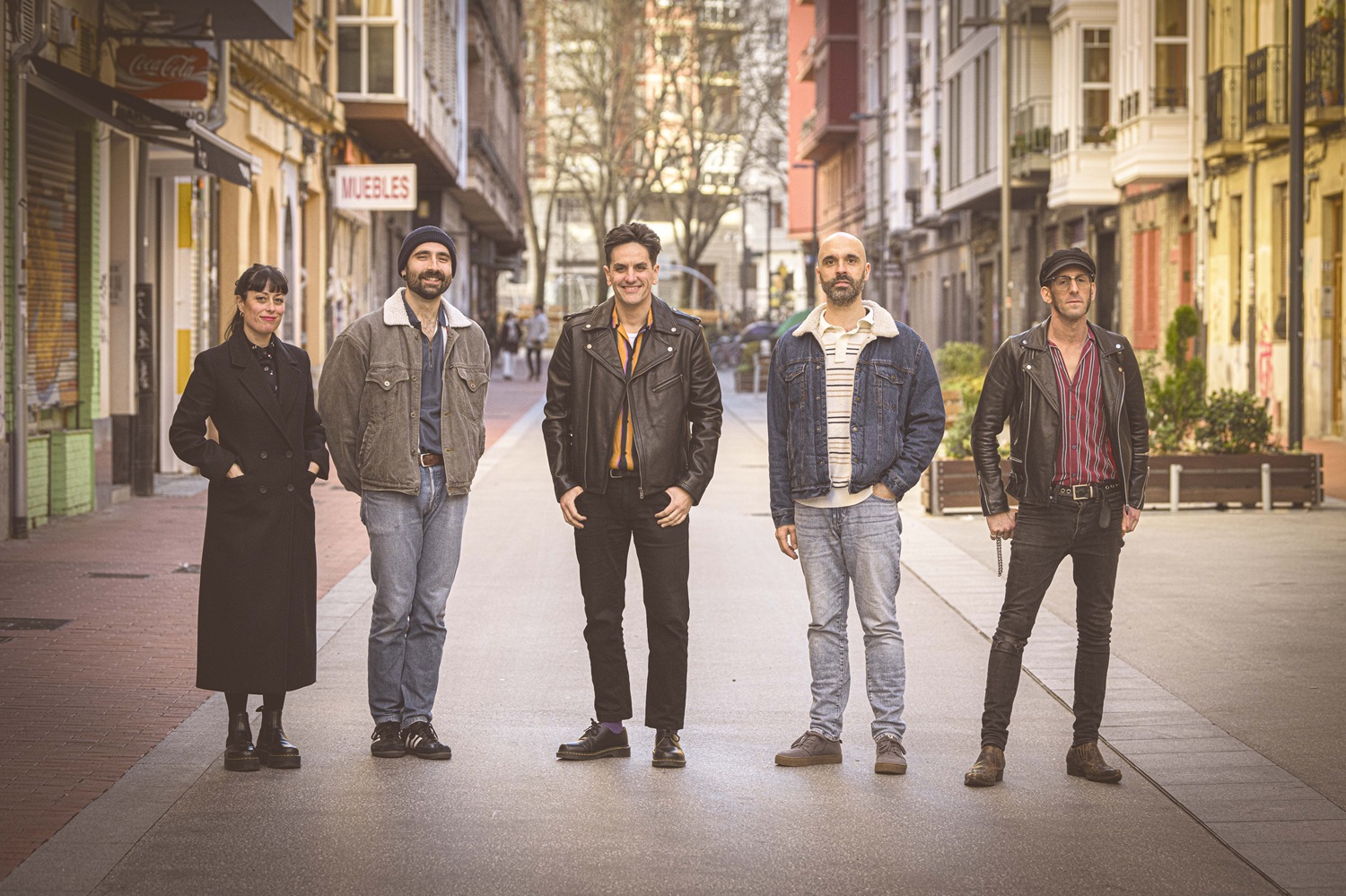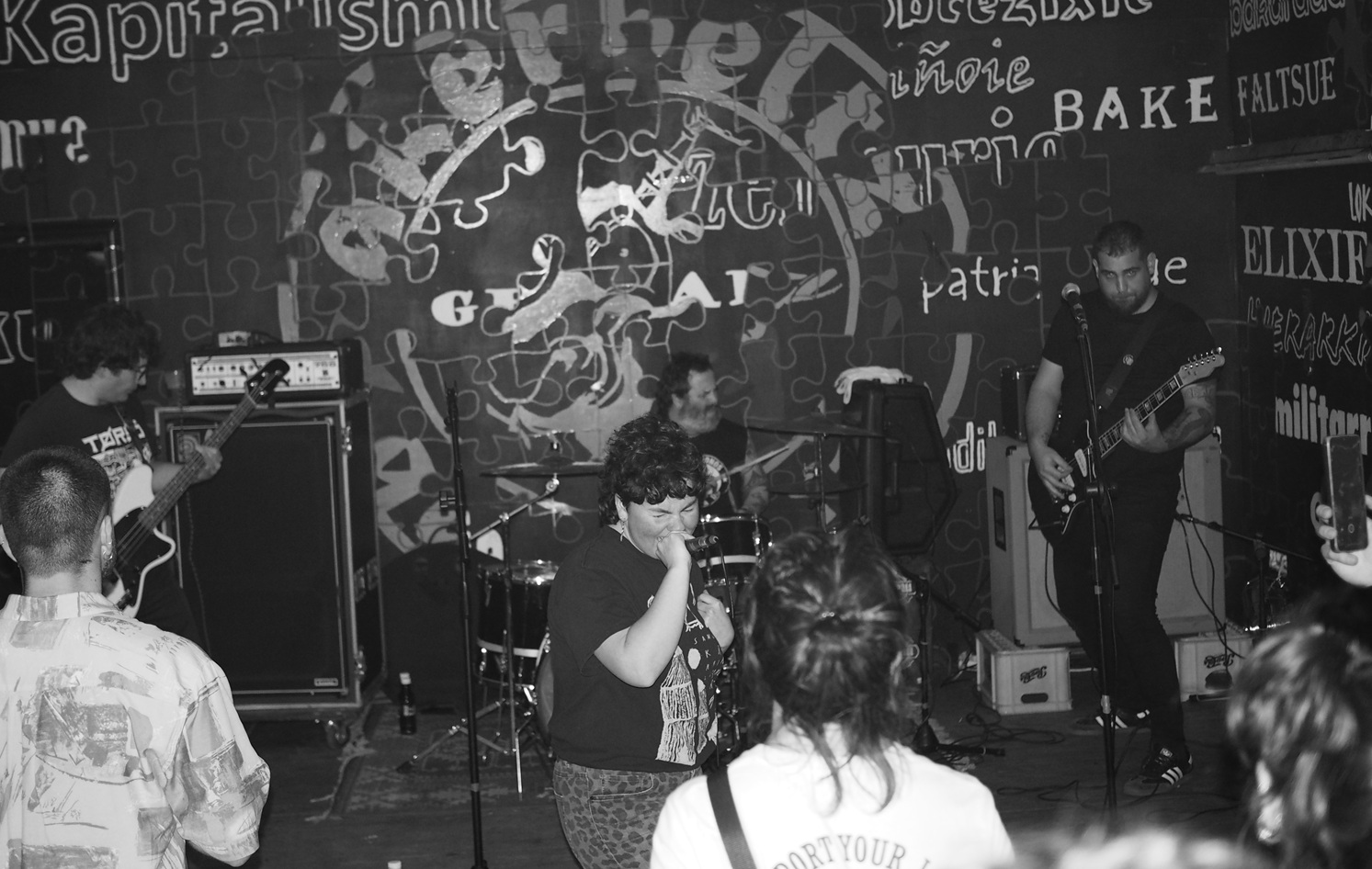Women in the Rock Flame
- The 1980s represented a prosperous time for rock music in the Basque Country. Numerous groups emerged, including Belladona, Matraka and the Black Widow. These three groups were Navarros musical groups composed exclusively of women. Iosebe Garaialde (Pamplona, 1961) was part of the first two groups and Puri Altzelai (Altsasu, 1963) was a bassist of the three: “We wanted to use it as a tool to tell what we thought and fight music.”
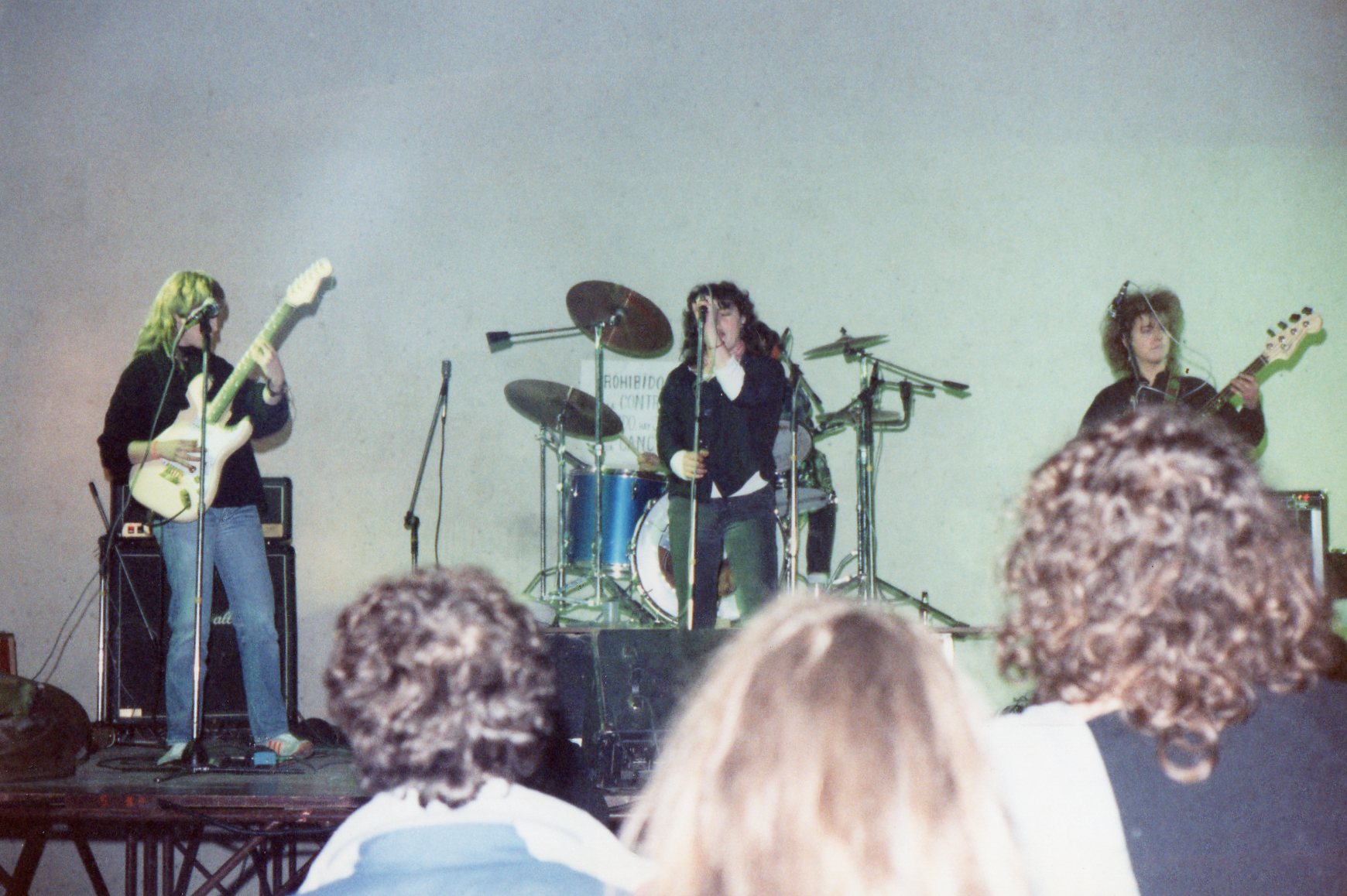
They are electric; “chopsticks, rockers and bitter”; “Matraka: fast and strong music”; “Navarre rock boils”... They could be read in the 1980 and 90 news about Belladona, Matraka and The Black Widow. In those years, rock music exploded in Euskal Herria, and although women were few, they did not stay behind. “There were very few women in the rock world, and here there was less. I remember that when we attended the concerts, members of other groups did not value us until we saw our musical test,” says Puri Altzelai.
From a young age, I was clear that I wanted to learn the guitar, but soon after starting at school, his guitar teacher from Altsasu went to work in Pamplona. The guitar was left without a professor: “I started with the Txistu, and I remember trying to play rock songs [laughed].” However, as the guitar preferred, he tried to learn on his own: “Some friends received private lessons, but as I couldn’t, I was behind them to learn.” Then he moved to Bilbao, where a member of the group Yo Qué Sé de Alsasua proposed to play the bass. He nodded – he doesn’t remember very well when he was, but he has very good memories.
They were asked to play at one of the concerts that took place at the Paseo Sarasate in Pamplona at the gates of the Sanfermines: “It was my first concert, and in a week I prepared the repertoire; think about how it came out.” Knowing what follows, bad not: Singer Aurora Beltrán watched the concert and gave an eye to Altzelai. Later on, the Belladona group was born from this relationship, which, when the project was in its beginnings, was dedicated to searching for drums and singers.
Puri Altzelai: "Stereotypes were very consolidated and girls didn't choose instruments like drums."
With difficulty they came to María Cerrato and Iosebe Garaialde. Garaialde worked in the Black Pavilion group before receiving Beltrán's call and commenting on Belladona's idea. After their yes, what cost them the most was finding the battery. A Extremadura girl was found, Cerrato.
It was hard to find girls who were in a rock group. “Stereotypes were very consolidated and girls didn’t choose instruments like drums. Instead, they chose the piano, the violin or the flute. In addition, compromise was also difficult.” Puri Altzelai is currently a professor at the Altsasu music school and has stressed that it is still very difficult for girls to choose instruments such as guitar and drums: “We have great struggles to fight these stereotypes.”

“We played
very well and we were excited by both the people and us. It helped us walk comfortably,” Garaialde said. In addition, Altzelai says that a different environment was created among women: “There was more understanding among women.” Garaialde felt that they also had the need to do things differently: “I think we got together unintentionally because we needed another way and a language to fight.”
Although women protected each other, Garaialde felt there was “a lot of misogyny” among them: “We conveyed a very hard aspect, because in the world of rock we had to continuously prove that we deserved to be there. I don't mean by that I didn't want to look like that, but at the same time I felt limited to dressing up some things. In the end, for one place or another, you were always judged and often faced.”
The feminism of not comparing and not judging has helped Garaialde, but it says that it is a “little by little” process: “It didn’t happen overnight. We were in a social movement, but as always, the discourse came above the experiences and things that we could emotionally manage at that moment. In addition, we came from a dictatorship, and suddenly everything seemed to be freedom, but it wasn’t real.”
In addition, he believes that "everything came very fast", since, as soon as they realized, they were on a stage and played in one place and another: “He hit me at the gallop, as if I had passed over.” Garaialde wasn't clear about what the job was and what his hobby was, and he struggled to focus on it: “I wasn’t prepared for
it.” I also felt like they lived in a bubble because they thought everyone was doing the same thing. “It’s a very serious mistake, because people are very different. Some, instead of getting high, were learning and others were working hard at the factory and then having a house and a car.” They also fought him. “Claiming what we wanted and saying that we were not going to the factory was part of our revolution.”
For Altzelai they were also turbulent years, because they were “pretty” and “painful”: “I was young and doing a lot of things, I was in all the sauces and I had a good time, but inside I also had a lot of pain for many things.” For one thing, I was making student life. From Monday to Friday he resided in Pamplona, where he studied teaching, and on weekends he returned to Altsasu: “I had a great time.”
The political context was “very hard.” Altzelai: “I remember the murder of Mikel Arrangi. These things lived very hard.” Herri Batasuna's councilor was killed by the Civil Guard in 1979, after being killed by a gunshot. In addition, Altzelai's uncle was killed in the war and his brother was in jail: “It was a very influential thing, the grandparents didn’t talk about their uncle and lived it all in fear.” However, he says that in those years everything happened “very quickly”: “I always say that we were in a washing machine that was centrifuging.”
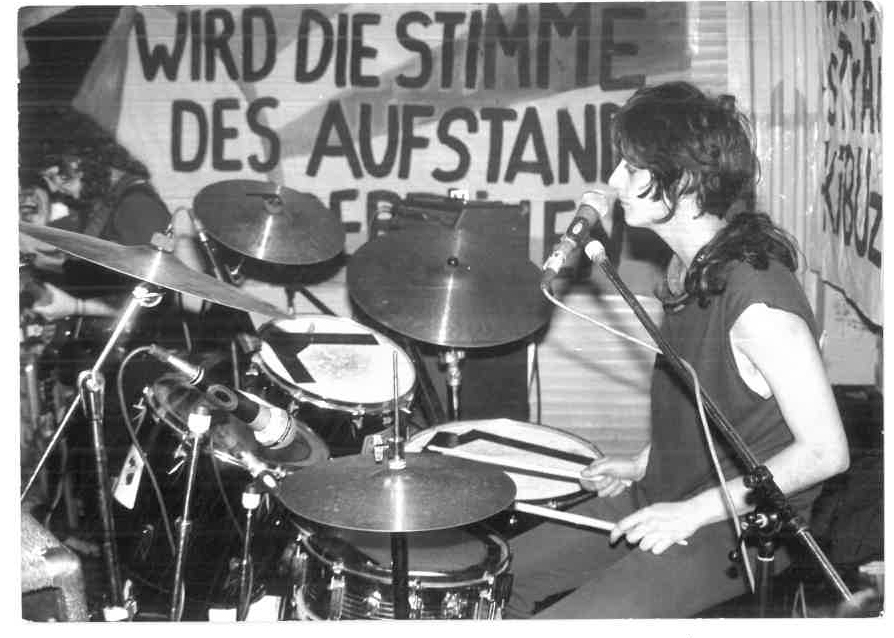
Women, sexuality and prisoners in the middle of
all that Zurrunbilo, the Belladona group created the first and last snowfall: Women and Blacks first (Dreamua, 1986). “In all the movies in which there were disasters, they always said to save women and children first. So ironically, we wanted to turn around and put women and black people in the center of the city. In the end, we were always the last ones, and until recently we had to ask for permission to do anything,” Garaialde explained.
They also struggled for a lot of things, like sexuality, prisoners, the needy, later on with Matraka, and for the Basque country. They sang phrases like “my flag is disobedience,” “they want to show virility with stupid pids,” or “we like to enjoy.” Altzelai says: “We wanted to tell what we thought and use music as a tool for fighting.” And Garaialde adds: “Those of us who didn’t like folklore so much wanted rock.”
Iosebe Garaialde: "There was more understanding among women and we felt the need to do things differently."
However, Garaialde struggled to find his voice in the world of rock, as he came from singing in the choir. Therefore, it became “impossible” to put everything learned about the voice into practice in a group: “It was another way to sing. So, everything I knew about my voice, like modulations and dynamics, was not for rock. That’s why I struggled to find my voice.” In addition, he stressed that she lacked female referents: “There were Janis Joplin, Billie Holiday and Donna Summer, but we met them later.”
Shortly after Elepea's recording, the band dissolved and Beltrán founded Tahures Zurdos. The other members, Garaialde (voice), Altzelai (bass) and Cerrato (drums), along with Janis Ortiz de Zárate (guitar), founded the Matraka group in 1987.
In the jump from
Belladona to Matraka to Euskera there are two great changes: on the one hand, they move away from rock and approach punk; and on the other hand, the conscious effort of singing in Euskera. “At the time of Matraka we were out of the bowels to make more punk music,” said Garaialde. “We wanted more rods and also, as Janis picked up the guitar, it changed the style,” adds Altzelai.
In addition, according to Garaialde, drugs, especially speed, had a “significant” effect. For example, it is seen in the result of the album "Planes aketa" (Oihuka, 1990): “It was very emergent, because everything was fast. I think the songs lose.” He added that, after the repression of the dictatorship, there was a “great” curiosity to try and live: “At some point the drugs were very creative, but at the same time, if you were walking, they could also be very destructive.”
As for the Basque, Garaialde has made it clear that “yes or yes” they wanted to speak in Basque: “Although I didn’t know the Basque well, I was in favor of the Basque.” At that time, the two were learning Basque. “It was very clear that I wanted to learn Basque and live in Basque. That’s why, with the little I learned, I managed to write letters as I could,” said Altzelai. At first, it was sometimes “difficult” and “hard” because it did not have the necessary tools to speak in Basque, or to express what it meant. However, he did not surrender. “It was the only way for me. You have to integrate Euskera in all areas of life; otherwise, even though you have learned time and time again, then don’t bother in everyday life.”
Puri Altzelai: "Although I didn't know the Basque well, I was in favor of the Basque. It was very clear that I wanted to learn and live in Basque. So with the little I knew, I managed to do it as I could to make letters.
Our complaint was Matraka’s first album and was dedicated to Altzelai’s brother – who was in jail – and to the Txarito command: “It was very hard for my brother to be in jail. At all times he was present and wanted to use all the instruments he had, in this case music, to fight it.” Garaialde added that, from the political point of view, those years were “very hard”: “We came from a time of great punishment and with all that it means to face, speak in Basque and claim Euskal Herria”.
However, Garaialde believes that he could be dedicated to anyone who wants to be the protagonist of his life: “Always going is a song that expresses it very well: ‘It always goes, it always goes, it never returns (...) the animals always know when the storm is going to explode.’
European tour When
they recorded their first album they toured Europe in favor of the Basque National Liberation Movement ENAM. This tour involved groups such as Kortatu and Hertzainak and Belladona were also invited, but as they had just separated, they did so later with Matraka. “We were part of the alternative movement in Europe and we met some occupied houses in Switzerland and Germany. They were imposing neighborhoods, all with occupied houses. It was very nice,” Garaialde says.
They played in many bars, including in the Rote Fabrik room in Switzerland: “It was a gigantic building dedicated to young people that did everything: circus, music courses…”. Also in Bern (Switzerland): “I remember that there we joined La Polla Records, who came from Italy, we spent many nights.” They then moved to Berlin, where they played in a bar intended exclusively for women, where they were attended by fire fighters. “At that time it was terrible.”
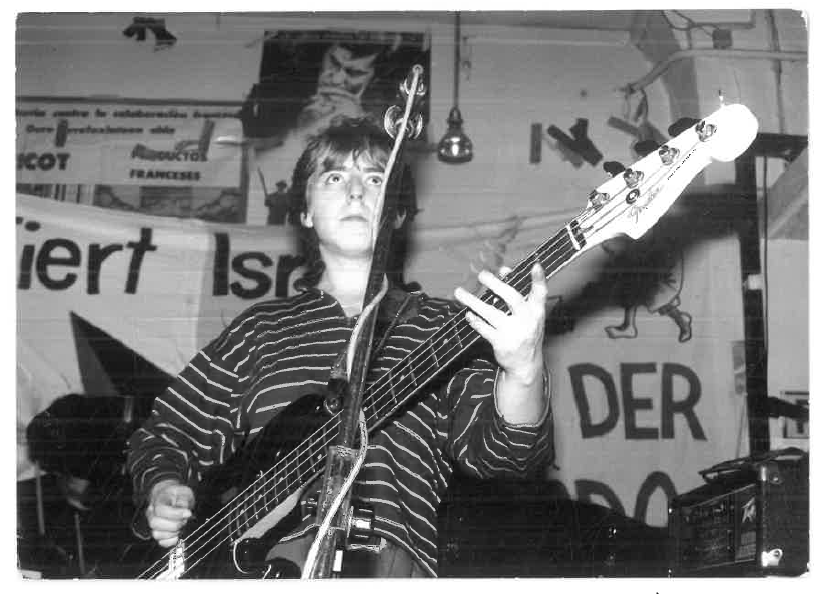
They also participated in a demonstration in favour of Intifad in Hamburg, Germany: "It was the biggest demonstration I've seen in Palestine. There were a lot of policemen and a lot of controls were done. During the demonstration we distributed signs of a concert.”
After that, they started recording their second album, and Altzelai explained that they started working on "more personal" topics: “It happens to a lot of teams. At first you focus on social struggles, and over time, you also want to count internal things.”
Therefore, they published the album Beldurri ez (Oihuka, 1991). It was Matraka's second and final album, and his goal was to confront fears through music: “I had a great time in childhood and adolescence, but at the same time I had a very painful life and I had many fears about it.” In addition, he added that they had a “great influence” on their life: “We women lived through these harder situations, because the risks were greater.”
In the creation of the second album there were many changes in the group; Garaialde left the group. After that, he stepped away from music for many years. But over ten years ago, he started playing guitar. “Recovering music has been essential to feel better about myself.”
The last breath with Garaialde's
departure, and with some changes, was changing the style of the group. Finally, the band dissolved and Altzelai and Ortiz de Zárate formed the rock group La Viuda Negra along with Christel Teruel (voice and electric guitar) and Eva Fernández (drums).

Teruel was the author of most of the group's compositions, and published his last album, La Viuda Negra (1998): “We worked on many issues, many of them related to love and sexuality.” They also addressed other issues such as sexual violence and drugs. Although they were “pretty” years, they were also “tough” for Altzelai: “At first everything was juerga and then the consequences came, especially with heroin. We lost many friends.”
He stressed that heroin was not randomized to Euskal Herria, but to “humiliate” the people by political straits: “It was very easy to get there. Power introduced a lot of drugs quickly and easily. In Euskal Herria, there was a lot of movement and a lot of people struggled for a lot of things. To destroy it they introduced drugs, especially heroin, and they succeeded.”
When The Black Widow released her first album, the group broke up because Altzelai and Fernández decided to leave the group. Altzelai was a professor of Primary and had to go to Pamplona to rehearse: “We end up a bit burned because the commitment of all the participants is not the same.”
At the end of the group, Altzelai started studying guitar. At first I wanted to learn the electric guitar, but since I wasn't in Altsasu's music school, I studied the classic: “I liked it.” He is currently a music teacher at school: “I continued to be a professor, but compaginating it with music.”
BRN + Auzoko eta Sain mendi + Odei + Monsieur le crepe eta Muxker
Zer: Uzta jaia.
Noiz: maiatzaren 2an.
Non: Bilborock aretoan.
---------------------------------------------------------
Ereindako haziek ura, argia eta denbora behar dute ernaltzeko. Naturak berezko ditu... [+]
Amartuvshin Enkhbat baritonoa
Pianoan: Stefano Salvatori.
Antolatzailea: OLBE.
Zer: Verdi, Mascagni, Leoncavallo eta Giordanoren operen ariak.
Non: Bilboko Euskalduna Jauregian.
Noiz: martxoaren 29an.
Aramu + AimarZ
When: April 26.
In which: The Zumarraga Open Field.
---------------------------------------------------------
The website of the City Council says: "The tourist brand Viva Viva and the festival of the same name are designed to show the world the soul of... [+]
Transparent Beings
When: April 20th.
In which: In the Plaza of the Castle of Pamplona.
-----------------------------------------------
The concert is only half an hour away in the Plaza del Castillo de Pamplona; but it is still half empty, because it is raining. Whether... [+]
Obduction of Amenaza / Zirt Zart (Split-ep)
2024
---------------------------------------------------
The musical panorama is gigantic, impassable. Among them there are a few large groups that absorb all the foci; many others that are dedicated to the pursuit of it, and... [+]
Aposapo + Mäte + Daño Dolor
When: April 5th.
In which: In the Youth Center of Markina-Xemein.
---------------------------------------------------------
I’ve made my way to the cheese house with the shopping cart full of vegetables, and we’ve spent the evening cutting... [+]
Poliorkêtês
Kerobia
Autoekoiztua, 2025
--------------------------------------------------------
Azken aldian, lerrootan asko nabil hausnartzen musikak izan beharko lukeen “misio historikoaz” eta abarrez. Eta, nolabait, zer egin beharko lukeen... [+]
On March 7, the 150th anniversary of the birth of Maurice Ravel, the best Basque composer of all time. And in LA LUZ a tribute was paid to this composer, recalling the influence of the famous Bolero on the collective imagination.
By chance, Deutsche Grammophon has just released... [+]








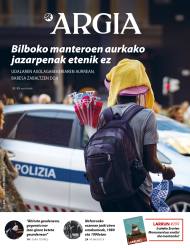


.jpg)

